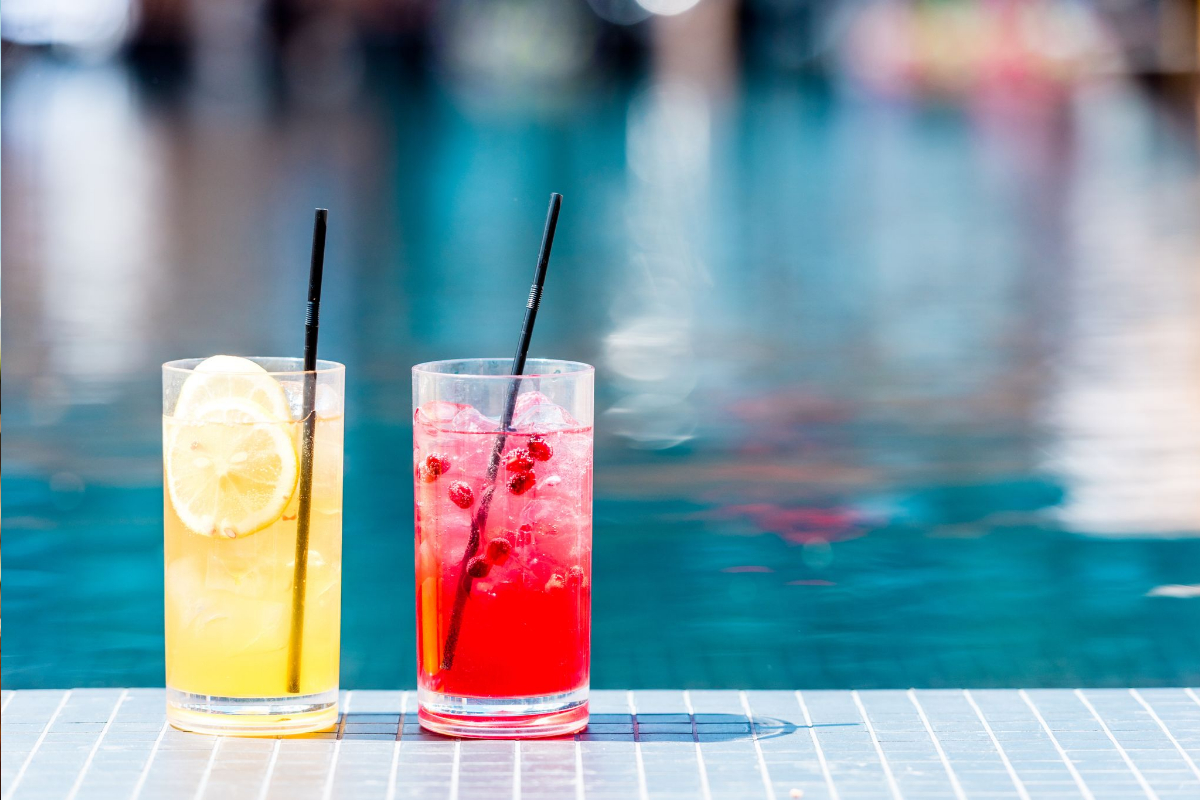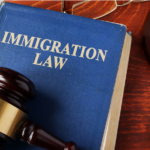Indonesia, the largest Muslim-majority country in the world, provides an intriguing glimpse into how it manages the blend of cultural traditions, religious beliefs, and alcohol regulations. While some places strictly enforce a no-alcohol policy, many (like Bali) allow drinking under specific rules. This leads us to explore what the Alcohol License Indonesia has to offer for business enthusiasts.
Much like its nuanced approach to alcohol, Indonesia’s licensing and permits for alcoholic beverages are complex, but fret not! We’re here to walk you through each step, from gathering the necessary documents to processing the licenses. First, let’s tackle some frequently asked questions in the section below that you should know.
FAQ about Indonesia and Alcohol
Is alcohol legal in Indonesia?
Even though the country’s population is predominantly Muslim, alcoholic beverages are not illegal, but heavily regulated. So, the key question is, “Is alcohol allowed in Indonesia?” This largely depends on the specific area you plan to stay in or establish your business. Take Bali, for example. Yes, alcohol is allowed in Bali. It’s a region with a drinking culture and traditional practices that involve the consumption of alcoholic beverages. During social gatherings, you’ll often encounter traditional drinks, including the well-known Arak Bali.
Is Indonesia a dry country?
Indonesia is NOT entirely a “dry” country in the sense of prohibiting alcohol nationwide. However, its large Muslim population significantly influences social norms and regulations. Alcohol carries high taxes, public consumption is generally discouraged, and the province of Aceh even enforces complete prohibition under Sharia law. But Indonesia isn’t completely uniform. Tourist areas like Bali offer greater alcohol availability, and regional cultural perspectives vary.
Which regulation regulates alcohol businesses in Indonesia?
Regulation 17/2019 of the Minister of Industry; subject: Control and Supervision of Alcoholic Beverage Industry. It replaces its predecessors, notably Regulation No. 63/M IND/PER/7/2014 and its revised version, Regulation No. 62/M-IND/PER/8/2015.
Regulation 17/2019 covers different things like how alcoholic drinks are grouped, strict rules for businesses (such as a license for alcohol in Indonesia if you’re in the alcoholic beverage business), and specific limits to control this industry in Indonesia.
What are the alcoholic beverage classifications in Indonesia?
Regulation 17/2019 categorizes alcoholic beverages in Indonesia based on their alcohol content:
- Class A: ≤ 5% ethyl alcohol/ethanol (fermented beverages like tuak, brem, and tape)
- Class B: 5% – 20% ethyl alcohol/ethanol (beer, wine, and some traditional beverages)
Class C: 20% – 55% ethyl alcohol/ethanol (spirits like vodka, gin, and whiskey)
Form of Alcohol License in Indonesia
Indonesia has a specific regulation for the alcoholic beverage industry, covering businesses involved in producing, importing, and/or selling alcohol. Each of these businesses needs to get a permit known as SKPL, which is short for Surat Keterangan Penjual Langsung or direct selling permit, specifically designed for alcoholic beverages.
Another permit to note is NPPBKC, which stands for Nomor Pokok Pengusaha Barang Kena Cukai, or excisable or taxable goods business/entrepreneur identification number. Without these two permits, your business isn’t allowed to engage in any activities related to alcoholic products.
Beyond SKPL and NPPBKC, business enthusiasts, not just those in the alcoholic beverage industry, should be aware of the necessity of obtaining an IUI (Izin Usaha Industri or industrial business license). Let’s break down each of these permits below:
1. IUI (Izin usaha Industri)
Translated as an Industrial Business License, IUI is crucial for any individual or entity involved in industrial activities. These activities involve transforming raw materials or utilizing industrial resources to create products with added value, as well as packing, storing, and distributing them. Alcoholic product factories, bars, and restaurants serving alcoholic products must possess an IUI.
Make sure you acquire the relevant IUI license based on your industry type and scale to avoid legal complications. By obtaining and maintaining an IUI, you can operate your industrial business in Indonesia legally, responsibly, and with access to various opportunities. Keep in mind that IUI can be amended and revoked. To delve deeper into this topic, check out our [insert other Alcohol License article I wrote] article.
Types of IUI
- Production IUI: For producing alcoholic beverages.
- Distribution IUI: For distributing alcoholic beverages produced by others.
- Storage IUI: For storing alcoholic beverages for themselves or others.
- Retail IUI: For selling alcoholic beverages directly to consumers (e.g., restaurants, bars).
Key Requirements for IUI
- Must have: NIB or Indonesian business license.
- NPPBKC registration.
- Submission of Technical Data Form detailing your business activities and product information.
IUI Issuance
The IUI is given through the Online Single Submission (OSS) system, following Regulation 24/2018. This streamlined online platform ensures an efficient and transparent licensing process.
2. SKPL (Surat Keterangan Penjual Langsung)
SKPL, or SKPL-MB to be precise, translates to a direct selling permit for alcoholic beverages in Indonesia. It’s essential for any business involved in directly selling alcoholic beverages to consumers, regardless of the business type or sales channel (including online). Once approved, the SKPL-MB is valid for one year and can be renewed upon application.
Types of SKPL
Here are the types of SKPL issued based on alcoholic beverage classifications, categorized by alcohol content: A, B, and C.
- SKPL-A: for Class A alcoholic beverages (fermented beverages like tuak, brem, and tape)
- SKPL-B: for Class B alcoholic beverages (beer, wine, and some traditional beverages)
- SKPL-C: for Class C alcoholic beverages (spirits like vodka, gin, and whiskey)
Key Requirements for SKPL
- Business registration certificate.
- NPWP (tax identification number).
- Statement of ownership or lease agreement for the business premises.
- Health and safety certifications (if applicable).
- Environmental impact assessment (for larger businesses).
3. NPPBKC (Nomor Pokok Pengusaha Barang Kena Cukai)
NPPBKC translates to excisable goods business identification number or taxable goods entrepreneur identification number. It’s a unique 16-digit code assigned by the Directorate General of Customs and Excise to businesses involved in producing, importing, and distributing alcoholic beverages in Indonesia.
While there are no specific types of NPPBKC, the application process unfolds in two phases. The initial phase includes submitting necessary documents, undergoing an initial evaluation, and verification. The second phase comprises a more thorough examination of the application, ensuring full compliance with all regulations and standards.
What are the benefits of IUI, SKPL, and NPPBKC?
The three permits— IUI, SKPL, and NPPBKC—each have specific roles for business individuals or entities. Here’s a breakdown:
- Legality and Compliance: These permits serve as official permission from the government to operate an industrial business. They verify your adherence to environmental, safety, and industrial zoning regulations, ensuring responsible operations.
- Market Access and Business Opportunities: Holding these permits unlocks crucial business opportunities, allowing you to participate in tenders, bid for contracts, and secure collaborations with other businesses.
- Protection and Security: IUI, SKPL, and NPPBKC offer a form of protection against unauthorized competition, safeguarding your fair market presence. Without these licenses, competitors might face legal repercussions.
- Transparency and Accountability: The application process for these permits, especially IUI, involves submitting various documents and approvals, promoting transparency and accountability in your business practices.
Alcohol License Indonesia Application Process
is a multifaceted process, involving various permits, navigating intricate regulations, and understanding regional distinctions. Seeking guidance from local experts, such as our team at Bali Business Consulting, and planning well are crucial for a smooth application process.
Preparing the Documents
The documents required for alcohol licensing in Indonesia depend on your specific license type and business nature. Here’s a general overview of key documents required, to be submitted with the filled and signed application/registration form:
- Article of Association of Public Notary (AKTA Notaris), outlining your company’s structure and regulations, and its Validation from the Ministry of Law and Human Rights (SK Menteri Hukum dan Hak Asasi Manusia). Any amendments should be included.
- Director’s ID (KTP/Passport and KITAS) and Taxpayer Number (NPWP).
- Company’s Tax Number (NPWP) and Local Tax Number (NPWPD).
- Business licenses and documents, such as NIB (Business Registration License), SPPL (Environmental License), PKKPR (Location Permit), Certificate Standard, BPJS (registration numbers for health and labor insurance), and the company’s official letterhead and stamp for correspondence.
- Company’s location details with precise map coordinates, along with a situation plan around the building site and a detailed floor plan.
- A comprehensive list categorizing the alcoholic beverages to be produced, imported, distributed, or sold.
- Applying for SKPL-A for Alcohol Content up to 5%:
- Applying for SKPL-B (and SKPL-C if necessary) for Alcohol Content up to 45%:
- Processing NPPBKC Phase I: Initial Evaluation and Verification
- Processing NPPBKC Phase II: In-Depth Examination
Contact Us at Bali Business Consulting
Ready to kickstart your alcohol license journey in Indonesia? Connect with our team today for expert help. Whether you’re figuring out licensing steps, need some clarity on rules, or just want support in getting your business off the ground, our experienced team is here to steer you in the right direction. Reach out now to start a successful ride in the alcohol industry!










